Many journalists, at some point in their careers, have had an “Ah-hah!” moment -- a sudden realization about the impact of their work or the work of their colleagues. Many of the journalists interviewed for the WNN report provided a single anecdote about an event that helped them understand and appreciate the power and purpose of journalism. We are sharing those epiphanies here.
 |
Mark Lever
President and CEO
Mark Lever, president & CEO, The Chronicle Herald, Halifax, Nova Scotia, tells about a time when the power and pours of journalism became clear to him. |
 |
Heather Tedford
Retired Director of Sales and Marketing
Heather Tedford, retired director of sales & marketing, The Guardian, Charlottetown, Prince Edward Island, describes a time when the power and purpose of journalism became clear to her. |
 |
Joycelyn Lloyd
Web Editor
Joycelyn Lloyd, web editor, The Guardian, Charlottetown, Prince Edward Island, tells about a time when the power and purpose of journalism became clear to her. |
 |
Gary MacDougal
Retired Managing Editor
Gary MacDougal, retired managing editor, The Guardian, Charlottetown, Prince Edward Island, tells about a time when the power and purpose of journalism became clear to him. |
 |
Shelley McKeeman
Director of Business Operations
Shelley McKeeman, director of business operations, St. Croix Courier, St. Stephens, New Brunswick, tells about a time when the power and purpose of journalism became clear to her. |
 |
Vern Faulkner
Editor
Vern Faulkner, editor, St. Croix Courier, St. Stephens, New Brunswick, talks about a time when the power and purpose of journalism became clear to him. |
 |
Rob Teague
Associate News Editor
Rob Teague, associate news editor, digital news, The Montreal Gazette, talks about a time when the power and purpose of journalism became clear to him. |
 |
Lucinda Chodin
Editor-in-Chief
Lucinda Chodin, editor-in-chief, The Montreal Gazette, describes a time when the power and purpose of journalism became clear to her. |
 |
Erika Tustin
Digital News Editor
Erika Tustin, digital news editor, The Toronto Star, tells about a time when the power and purpose of journalism became clear to her. |
 |
Jane Davenport
Managing Editor
Jane Davenport, managing editor, The Toronto Star tell about a time when the power and purpose of journalism became clear to her. |
 |
Wendy Sawatzky
Associate Editor, Digital News
Wendy Sawatzky, associate editor, digital news, The Winnipeg Free Press, tells about a time when the power and purpose of journalism became clear to her. |
 |
Paul Samyn
Editor
Paul Samyn, editor, Winnipeg Free Press, talks about a time when the power and purpose of journalism became evident to him. |
 |
Bob Cox
Publisher
Bob Cox, publisher, The Winnipeg Free Press, tells about a time when the power and purpose of journalism became clear to him. |
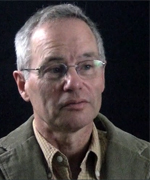 |
Terry Pugh
Assignment Editor
The assignment editor from The Clark's Crossing Gazette, Terry Pugh, shares an epiphany he had about a time when the power and purpose of journalism became clear to him. |
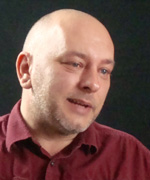 |
Terry Jenson
Publisher
The publisher of The Clark's Crossing Gazette, Terry Jenson, shares an epiphany about a time when the power and purpose of journalism became clear to him. |
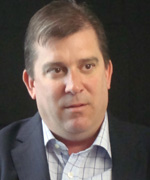 |
John Kopeck
Director of Sales, Edmonton Journal
Edmonton, AB
John Kopeck, director of sales, The Edmonton Journal, talks about a time when the power and purpose of journalism became clear to him. |
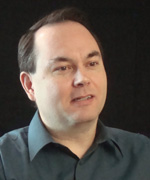 |
John White
Digital News Editor, Edmonton Journal
Edmonton, AB
John White, digital news editor, The Edmonton Journal, tells how the power and purpose of journalism became clear to him. |
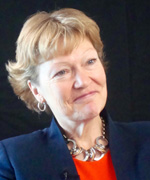 |
Margo Goodhand
Editor, Edmonton Journal
Edmonton, AB
Margo Goodhand, Editor, The Edmonton Journal, describes a personal epiphany about the power and purpose of journalism. |
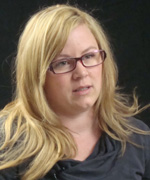 |
Kelly Davies
Creative Services Director, Powell River Peak
Powell River, BC
The power and purpose of journalism became evident to Powell River Peak Creative Services Director Kerry Davies when the mission of The Peak became clear to her: “We’re here to help the community, ” she says. |
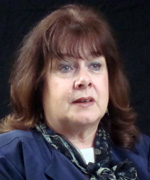 |
Joyce Carlson
Publisher, Powell River Peak
Powell River, BC
The power and purpose of journalism became evident to Powell River Peak Publisher Joyce Carlson early in her career when she first encountered her byline in print as a young reporter and began to hear feedback about stories she had written from readers. |
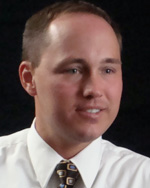 |
Zach Ahrens
Advertising Director, The Grand Forks Herald
Grand Forks, ND
Zach Ahrens had his “a ha” moment while he was publisher of two small weekly newspapers. Presidential candidates would stop by and court the newspapers. “It reminded me of the credibility of the product that we have,” says Ahrens. |
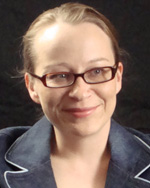 |
Kirsten Stromsodt
Assigning Editor, The Grand Forks Herald
Grand Forks, ND
Kirsten Stromsodt was a senior in high school when the Red River flooded in 1997. She was assigned by her family to pick up the daily newspaper when it was distributed every afternoon at a local gas station. She remembers people crowded around The Herald’s newspaper truck as they tossed off the papers. “It still gives me chills,” says Stromsodt. “We serve a purpose and people think we are important.” |
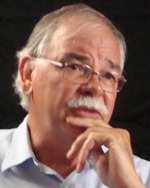 |
Mike Jacobs
Editor & Publisher, The Grand Forks Herald
Grand Forks, ND
Mike Jacobs had an early epiphany when he was a cub reporter in Dickinson, N.D. He covered a combined city council, county commissioners meeting at which the commissioners did not come prepared. When he reported that fact the next day, one of the commissioners called him and said another meeting had been scheduled, and “he was bringing his books.” I learned “the value of writing something down and sharing it,” says Jacobs. |
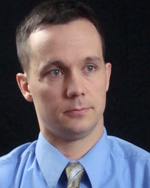 |
Seth Tupper
Editor, The Daily Republic
Mitchell, SD
Seth Tupper had an “a ha” moment when he dug into a story at city hall and discovered someone had bollixed inserting a sidewalk ordinance city officials thought was on the books. His digging paid off, and he wonders: “If we were not here, who’s going to do this kind of reporting?” |
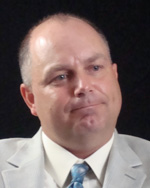 |
Korrie Wenzel
Publisher, The Daily Republic
Mitchell, SD
Korrie Wenzel learned key lessons about the “dos and don’ts of intrusiveness” after a tornado hit Spencer, S.D. He also discovered, in several ways, how “newspapers make a difference.” |
 |
Mike Knaak
Assistant Managing Editor/Digital, St. Cloud Times
St. Cloud, MN
Mike Knaak felt the authority of the press when he wrote a story about plans to expand high-voltage power lines through the region. “That story stills lives in people’s lives,” says Knaak. “People paid attention; it’s not just an exercise.” |
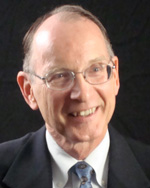 |
John Bodette
Executive Editor, St. Cloud Times
St. Cloud, MN
John Bodette learned the power of the press when the two daughters of a local couple both disappeared. “It was so emotional to hear the story of what the parents were going through,” says Bodette. “The world is out of sync until we find out what happened to [those children],” says Bodette. |
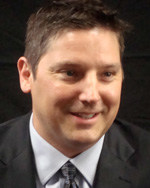 |
Scott Johnson
President and Publisher, St. Cloud Times
St. Cloud, MN
Scott Johnson learned the power of the press when his newspaper printed an incorrect price in an ad for one of the newspaper’s clients. “What you say will go a long way,” says Johnson, and on that occasion it went the wrong way as well. |
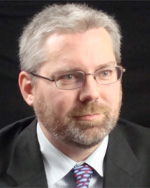 |
Tim McDougall
VP Products & Publisher, The (Cedar Rapids, Iowa) Gazette
Cedar Rapids, IA
Tim McDougall is a new entrant into journalism from the food, beverage and professional sports marketing industries. He has been at The (Cedar Rapids, Iowa) Gazette since 2010. As a newcomer, he is learning lessons frequently. When a vote on a tax levy to pay for flood protection in Cedar Rapids failed narrowly, he believes his newspaper did not dig deep enough to discover the undercurrent of community sentiment against the measure. He sees it as a lesson to look beyond traditional sources to get at the full story. |
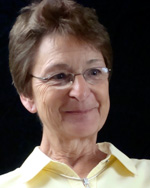 |
Laurie Pfeifer
Managing Editor, Aurora News-Register
Aurora, NE
Laurie Pfeifer got a dream assignment in college – cover a Robert Kennedy presidential campaign whistle-stop for her journalism class. Then the other shoe dropped. She also had to cover a Richard Nixon whistle-stop. She was a Kennedy fan, but her professor told her she would be graded “on fair and balanced reporting.” She learned that accuracy trumps personal feelings, and it’s a lesson she still practices. |
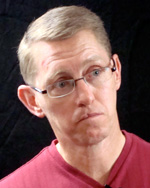 |
Kurt Johnson
Co-Publisher, Aurora News-Register
Aurora, NE
Kurt Johnson was the executive editor of a local daily newspaper in South Dakota when he got a tip that a college in his town was inflating its enrollment. Using insider information, Johnson’s reporting led to the sale and loss of accreditation for the school. Johnson felt the weight of his work and affirmed that reporting, “is a serious business and you need to treat it that way.” |
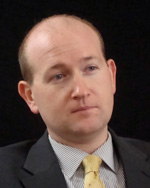 |
Jonathan Kealing
Assistant Director Media Strategy, Lawrence Journal-World
Lawrence, KS
Jonathan Kealing had an “ah-ha” moment after he received an anonymous package bearing confidential Kansas University documents. Kealing followed the document leak to its roots, wrote a story, and procedures were modified. “Seeing how the university changed was really powerful,” he recalls. |
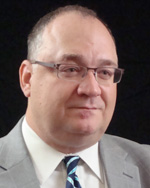 |
Dennis Anderson
Managing Editor, Lawrence Journal-World
Lawrence, KS
Dennis Anderson had to make one of those phone calls every reporter dreads -- to the mother of a boy who had just drowned. “She didn’t know me, but she had a story to tell,” says Anderson. She talked for a long time and Dennis took notes. Afterward, “ I knew that I helped her,” says Anderson. “We can do things like that – help people,” says Anderson |
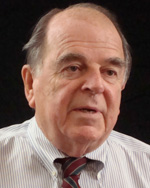 |
Dolph C. Simons Jr.
Chairman, The World Company; Editor, Lawrence Journal-World, Lawrence Journal-World
Lawrence, KS
Dolph Simons realized the importance of the newspaper business on a quiet Sunday, Dec. 7, 1941. He was a 7-year-old at his grandfather’s house for Sunday dinner when war broke out. Before the day was done he was on the streets of Lawrence, Kan., hawking an extra edition of his grandfather’s Lawrence Journal-World. |
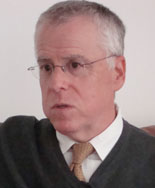 |
Tom Rosenstiel
Director, Project for Excellence in Journalism, Project for Excellence in Journalism
Washington, D.C.
Tom Rosenstiel’s first epiphany came when his new high school newspaper seized a mandate to write the news “the way they want to write it.” The authorities objected, and Rosenstiel discovered lessons were being taught at School Board meetings as well as in the classroom. |
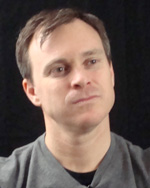 |
Duffy Hayes
Web Editor, Daily Sentinel
Grand Junction, CO
Duffy Hayes says he has learned that newspapers are “the prism though which people see the community.” And when he was a reporter, he says, “I just felt like I was making that connection [to the community] every day.” |
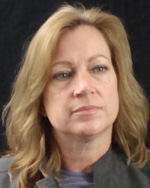 |
Laurena Mayne Davis
Managing Editor, Daily Sentinel
Grand Junction, CO
Laurena Mayne Davis was an advisor for a college student newspaper when she saw her young editor pressured for investigating the University’s Board of Trustees. The editor kept fighting, got her story out, and Davis learned a lesson: “If you do things for the right reason and stick to your guns – the right information can come out.” |
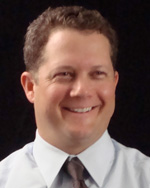 |
Jay Seaton
Publisher, Daily Sentinel
Grand Junction, CO
Jay Seaton’s “ah-ha” moment came when a regional sports blogger published an exclusive report on the appointment of a new football coach at Kansas State. “The newspapers did not go with it,” says Seaton, because they could not confirm it. “It was just not true,” says Seaton. “It demonstrated to me what we can do to continue to be the most important voice in the community.” |
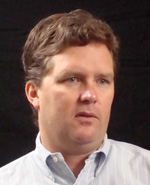 |
Thomas Dewell
Co-Editor, Jackson Hole News & Guide, Jackson Hole Daily
Jackson Hole, Wy
Thomas Dewell was a young court reporter when a woman made him a jaw-dropping offer he elected to refuse. The incident helped him realize the size of the stakes when you report on people’s lives. |
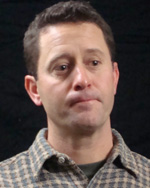 |
Kevin Olson
Associate Publisher, Jackson Hole News & Guide, Jackson Hole Daily
Jackson Hole, Wy
The Jackson Hole News & Guide, The Jackson Hole Daily (3:30)
Kevin Olson’s “ah-ha” moment came when he was working at the Orange County Register in Anaheim, Calif. When The Register told the story of its community at the beginning of the 21st Century, Olson discovered the importance of a newspaper reporting the stories of the successes and failures of a community to get the public engaged and excited about the place in which they live.
|
 |
Michael Becker
Web Editor, Bozeman Daily Chronicle
Bozeman, MT
Michael Becker was convinced that citizen journalism was fated to be “the wave of the future” until he closely watched the coverage of a gas explosion in downtown Bozeman, Mont., in March 2009. Twitter feeds flowed through the day, but Becker says when he saw the next morning’s Bozeman Daily Chronicle he realized “it takes a newspaper – or at least paid journalists – to do the best job.” |
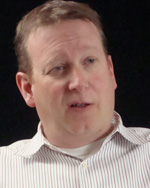 |
Nick Ehli
Managing Editor, Bozeman Daily Chronicle
Bozeman, MT
Nick Ehli was a young reporter in Billings, Mont., when he decided to do a story about six-man football in the tiny community of Custer, Mont. He enjoyed writing the story, but was deeply touched when he learned how his reporting affected a tough rancher near that small Montana town. |
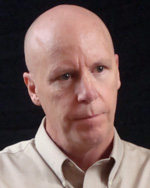 |
Mike Patrick
Managing Editor, Coeur d'Alene Press
Coeur d'Alene, ID
Mike Patrick was a young editor in his small, Illinois hometown when he learned that, even in familiar surroundings, a newspaperman can never “take anything for granted.” |
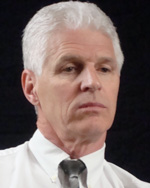 |
Jim Thompson
Publisher, Coeur d'Alene Press
Coeur d'Alene, ID
As a young man watching his father’s management of a daily newspaper, The Bonner County Daily Bee, in Sandpoint, Idaho, Jim Thompson learned how precious was the power of the press. Thompson watched his father abruptly fire two assistant editors who did not respect his wishes that his newspaper report “all sides of an issue.” Thompson saw newspapering in a new light after that incident. |
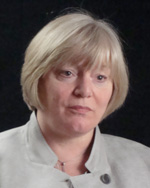 |
Kathy Best
Managing Editor (Creation), Seattle Times
Seattle, WA
Kathy Best tells the story of her decision, while at the Seattle PI, to re-investigate a sensational child abuse case in Wenatchee, Wash., after one of her colleagues said, “There’s something not right about this.” Best got flack in her newsroom for the assignment to recheck the story, but it paid off when the truth came out and the arrests were proven unwarranted. |
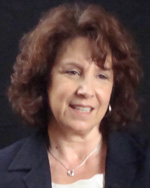 |
Suki Dardarian
Managing Editor (Curation), Seattle Times
Seattle, WA
Suki Dardarian sees “the power and purpose of journalism” in her newspaper every day. She cites a recent article, “Seniors for Sale” (included in The Times enterprise story collection), that reports on the mishandling of senior citizens in adult family homes. “Nobody knew about these situations,” says Dardarian. |
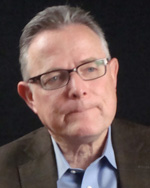 |
David Boardman
Executive Editor, Seattle Times
Seattle, WA
After a Vietnamese family suffocated during a Seattle cold snap when they used a charcoal burner to heat their home, David Boardman says The Times acted in a unique manner to protect the city’s non-English speaking public. Boardman says “it said to these new arrivals -- this is what a newspaper does!” |
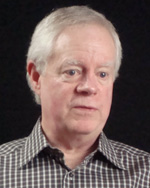 |
Frank Blethen
Publisher, Seattle Times
Seattle, WA
Frank Blethen tells the stories of The Times’ coverage of Boeing 737 flaws and the misdeeds of Washington Congressman Brock Adams – two instances when pressure was put on the newspaper to constrain its coverage. |
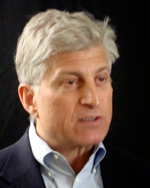 |
Mark Zusman
Editor & Co-Owner, Willamette Week
Portland, OR
Mark Zusman says, “On a regular basis, at Willamette Week, I am reminded both of the responsibility of what we do and yet the power of what we do -- even in this small little corner of the world.” He provides several examples to verify his point. |
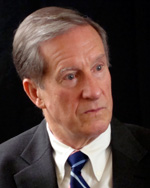 |
Richard Meeker
Publisher & Co-Owner, Willamette Week
Portland, OR
Richard Meeker was bitten by journalism while growing up in Washington, D.C., in the 1970s, hanging out with a schoolmate who was the child of Katharine Graham, the publisher of the Washington Post. Seeing the drama of Watergate played out in the Graham household, Meeker learned “what journalism was all about.” He sees that community service mission fulfilled in ways large and small at Willamette Week. |







































